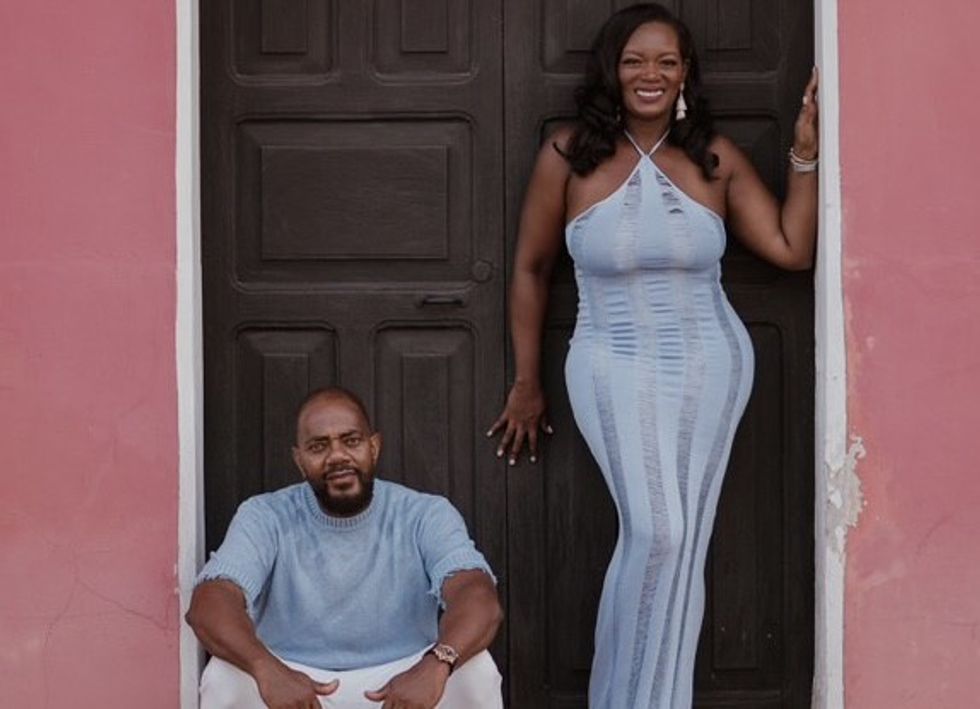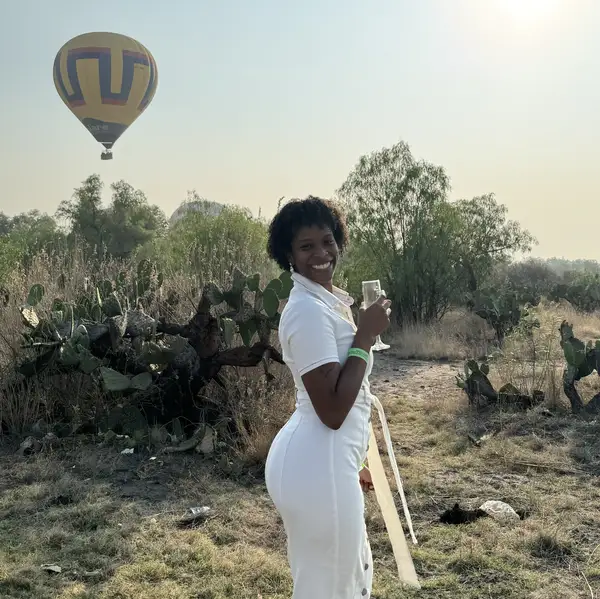In October 2024, Imani Murray embarked on a new chapter, leaving America for good. The tech professional had already spent a few months living outside the U.S., first in China and then in Thailand. But in October, she took a leap of faith, landing a remote job and settling in Mexico City. She’s not alone.
Driven by a desire for change, many Americans, especially Black women, are considering a life beyond the U.S. If you’ve been considering a move, it's crucial to consider some key factors before you pack all your bags, sell your furniture, and build a life in another country. Below, we've gathered insights from three Black women who have successfully made the leap.
Motivations for Moving
Many who decide to move out of the country are motivated by the desire to escape the rat race. After Murray attended Afrotech in 2023, she started a targeted job search that landed her a remote tech role in Mexico City.
“After attending AfroTech in Austin, I was surprised to learn that Mexico City had a lot of tech opportunities," she says. “So I booked a flight for November to check out the city. I had a friend in the city show me around, help me expand my Spanish, and give me an early connection in the city. After my first trip in November 2023, I returned in February 2024 and realized I qualified for temporary residency because of a previous Tulum trip in 2021, which solidified my decision to move here.”

Imani Murray relocated to Mexico City.
Courtesy
In May 2022, Niki Benjamin and her husband decided to move to France to be closer to his family. Originally from New York, Benjamin quickly fell in love with the area’s beaches, charming villages, and relaxing lifestyle.
“Living in the South of France, there’s an emphasis on healthy food, a great healthcare system, and a slower pace of life, which were all major draws for me,” she explains. “I've found a sense of peace and well-being here that I didn't know could truly be possible.”
Tamika Hardy’s recent move out of the U.S. was prompted by her husband’s retirement and his ability to work remotely. Her children were grown, and they were both ready to embrace a slower pace of life. They landed on Merida, Mexico, which has become a hub for Black American expats.
“We chose Mérida for its incredible safety. It’s known as the second safest city in North America, which gave us peace of mind for starting our new chapter and building our empty nesters' home,” Hardy says. “Mérida checked all the boxes. It’s 20 minutes from the beach, has warm weather and healthier food options, and it’s an easy flight back to the U.S. to visit family.”
The Biggest Challenges in Moving
For Niki Benjamin, the move from New York to France was a test of resilience. She had a month to get rid of personal items, coupled with the complexities of settling into a new country and learning a new language, which made the transition more difficult. Benjamin also found herself missing the familiar comforts of home.
“I missed the 24-hour access to grocery stores, reality TV and pop culture, and American fashion brands,” she says. “But with a bit of creativity, the internet, and the generosity of family and friends sending care packages, I've been able to stay connected and indulge in a good deal of the comforting familiarities of home,” she says.

Niki Benjamin relocated to the South of France.
Courtesy
Hardy also had a whirlwind move from Maryland to Mexico. She sold her home in three days and only had 30 days to figure out the logistics of the move. Along with the quick move, adjusting to the slower-paced lifestyle was hard for the couple.
“Things like getting services or tasks done on my timeline just don’t happen the same way, and I had to learn patience,” she says. “We also don’t speak Spanish, which was initially challenging. To help, we’ve started taking Spanish lessons, which has been a fun and humbling experience. Over time, I’ve grown to appreciate the slower pace and the learning opportunities, but it was definitely an adjustment.”
The Importance of Building Community
While modern conveniences like online shopping and remote work can foster a sense of isolation, Imani Murray believes that moving to a new country requires a different approach. She emphasizes the need to be open to new experiences, meet new people, and build a community.
“When I first moved to Mexico City, I would randomly talk to people in the street, especially Black people, who always reciprocated,” she says. “I’m also connected to people through Facebook and WhatsApp group chats, which helps me find events and connect with people.”

Tamika Hardy and her husband relocated to Merida, Mexico.
Courtesy
Though Benjamin moved with her husband and lived close to her in-laws, she still prioritized making friends and building connections to make the transition easier.
“I immersed myself in the local culture by interacting with neighbors, frequenting local shops, and joining community activities,” she says. “Joining the local tennis club has allowed me to connect with people who share my interests and is a great place to practice my French. The slower pace of life in a small seaside village has made it easier to build relationships and feel a sense of belonging.”
Hardy built community in Merida by attending local gatherings, like girls’ night out, karaoke, and movie nights. The couple also took up pickleball, which she says is “a fun way to stay active but also an amazing way to bond with both locals and fellow expats.”
The First Steps to Take If You Want to Leave the U.S.
Murray says the most important thing is researching where you want to go and what you’ll need. She recommends joining expat groups online and connecting with people who already live there.
“Everywhere has its problems, but choose a place that feeds that need within you,” she says. “Check Facebook for groups (for me, it was Black Expats in Mexico City) and ask any questions you might have. At the end of the day, most people are willing to help you, so you do not have to do it alone.”
Benjamin echoes this advice and says to use YouTube and social media to get real-life insights and research destinations for things like climate, demographics, culture, food, cost of living, and job opportunities.
“Once you've narrowed your options, it's important to understand the visa and immigration process, the local job market, housing options, and the healthcare system,” she advises. “Connecting with other expats can also provide valuable advice and support. Also, consider taking a longer vacation to your desired destination(s) and approach the visit as a great opportunity to explore the local vibes.”
The Benefits of Life Outside of the U.S.
Murray says one of the biggest benefits of moving abroad is access to better food and a healthier lifestyle. “The US has so many pesticides, hormones, and GMOs that are restricted here,” she says. “I’ve found that my health has improved significantly. A lot of things are also more accessible here, like medicine and healthcare.”
Benjamin also says that she’s been able to embrace a healthier lifestyle by leaving the U.S. Benjamin is a certified Pilates instructor and last year, she started Wish You Were Here Retreats, which are aimed at women who want a wellness break.
“I've further embraced a healthier lifestyle thanks to the emphasis on fresh, local ingredients and the opportunity to be active and spend more time outdoors,” she says. “Accessing quality healthcare has also given me peace of mind.”
Though Hardy misses Target runs, Chick-fil-A, and Homegoods, she says the slower pace and beauty of Mexico make it worthwhile.
“We have less stress and a slower, more intentional way of living,” she says. “The food is fresher, and the lifestyle has given us room to focus on what matters: our health, our dreams, and each other. Living abroad has truly been a manifestation of the life we’ve always wanted.”
Let’s make things inbox official! Sign up for the xoNecole newsletter for love, wellness, career, and exclusive content delivered straight to your inbox.
Featured image courtesy












